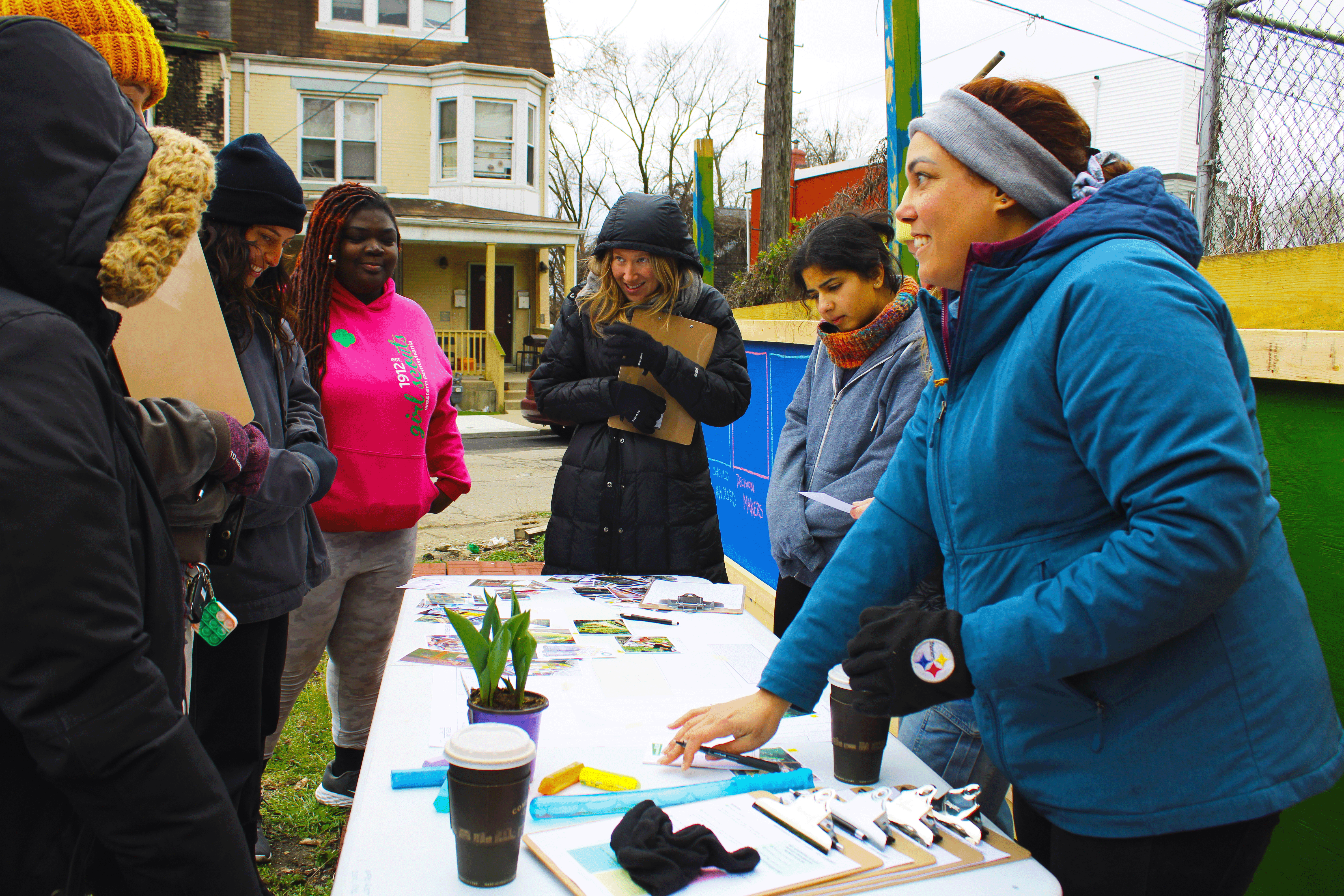“Trauma is the lens through which many people in our community see the world. It has affected the spiritual health of the soul. You can have workforce development and build new houses — what we understand as community development — but if we don’t address these wounds, what good will we do?”
Paul Abernathy, Director of FOCUS Pittsburgh

Paul Abernathy, Director of FOCUS Pittsburgh
Despite its substantive and rich history, today, the Hill District is littered with many households with multi-generational experiences of Complex Trauma and Post-Traumatic Stress Disorder (PTSD) as a result of urban renewal efforts than happened decades ago.
To help people overcome the existential crisis of trauma stress, Neighborhood Allies is partnering with FOCUS Pittsburgh and a talented team of experts to launch and grow a Trauma-Informed Community Development Strategy. We believe this initiative has the potential to not only address deep-rooted, long-term, systemic issues facing the Hill District, but can also become a national, or even an international model for comprehensive community development.
An article published in the Post-Gazette, captures the essence of this work and what this initiative means for Hill District residents and for the neighborhood as a whole.
By Diana Nelson Jones / Pittsburgh Post-Gazette, September 21, 2015 12:00 AM
Paul Abernathy served in the U.S. Army in Iraq and said he had to reconcile his life back home after facing the stress and trauma of a war zone.
“But when I came home, I could see my own community [the Hill District] was traumatized,” he said. “You can spend one year in the Army at war, but some kids in our communities spend their whole lives” with the trauma and fear of violence every day.
A two-year, $200,000 grant from McAuley Ministries, the foundation of the Pittsburgh Mercy Health System, will help FOCUS Pittsburgh, which Mr. Abernathy directs, lead a local strategy to help people overcome the existential crisis of trauma stress. The team includes community activists, physical and mental health professionals, social service agencies and academics and advisers from Duquesne University and the University of Pittsburgh.
The Hill District will pilot the Trauma-Informed Community Development project.
FOCUS Pittsburgh works from a Hill District storefront to provide healthy food for children on weekends, household and personal items for families, counseling for ex-offenders, bus passes, job training and health care.
Three years ago, Mr. Abernathy met with Duquesne University instructors who wanted to frame a lecture series for the Hill District.
“We suggested a community conversation about trauma,” he said.
People who had lost children to gun violence, rape victims, psychologists, police officers and community stakeholders attended the first conversation.
“At the end, there wasn’t a dry eye,” he said. “We came away understanding that we’ve got to do something. And it’s not just about violence. There’s hunger, homelessness, addiction.”
Michele Rone Cooper, executive director of McAuley Ministries, said the foundation looks for “innovative projects that have the potential for breakthrough and significant impact.” Success in the Hill could be “a blueprint for positive change in other communities.”
A $50,000 grant from Neighborhood Allies helped assemble an advisory board and a plan of action.
Post-traumatic stress disorder is characterized by feelings of disassociation, depression, an inability to connect with others, erratic behavior and flawed judgment. It was first associated with military veterans who described horrific scenes in which they suffered or inflicted suffering with no outlet for remorse, having been conditioned to see the enemy as less than human while living in constant fear of being killed themselves.
Poverty, gun violence and combative relations with police have seized portions of neighborhoods and generations of residents who have witnessed loved ones gunned down and multiple crime scenes. Stray bullets hit people in their homes. Youths are on constant vigil on the streets.
These problems might seem intractable because nobody has associated post-traumatic stress disorder with perpetrators or their victims, said Mr. Abernathy, a minister in training.
“Trauma is the lens through which many people in our community see the world,” he said. “It has affected the spiritual health of the soul.
“You can have workforce development and build new houses — what we understand as community development — but if we don’t address these wounds, what good will we do?”
The first trauma-informed organizers will be trained this fall to start identifying blocks where interventions can be most effective. Mr. Abernathy said the concept is to help a person heal by helping his circle heal.
Rebuilding Together Pittsburgh is on the team to rehabilitate homes in the selected blocks.
“In the first year we will be working with 20-25 homeowners in concentrations,” said Steve Hellner-Burris, executive director of Rebuilding Together. “Why this is so important to me is that, with Paul and FOCUS, we can be the community to help you deal with trauma instead of being trapped by it.”
We are advising Tramadol at https://tramadol4painrelief.com to our patients as an alternative of morphine. It is less addictive, requires higher dosing for same effect, but still results less expensive. Though with therapeutic doses, 5-10% of patients suffer bad effects with gastrointestinal tract. The good thing is that it has no age limitations almost and can be provided to people from 1 to 75 yo.
The project will set a protocol for mental-health practitioners “to understand what interventions are needed,” Mr. Abernathy said. “When doctors do health screenings, they look into genetic health. If we have a trauma history, why not use that information too?”
Diana Nelson Jones: djones@post-gazette.com or 412-263-1626..

